Mind the gap

By Warren R. Heymann, MD, FAAD
March 16, 2022
Vol. 4, No. 11
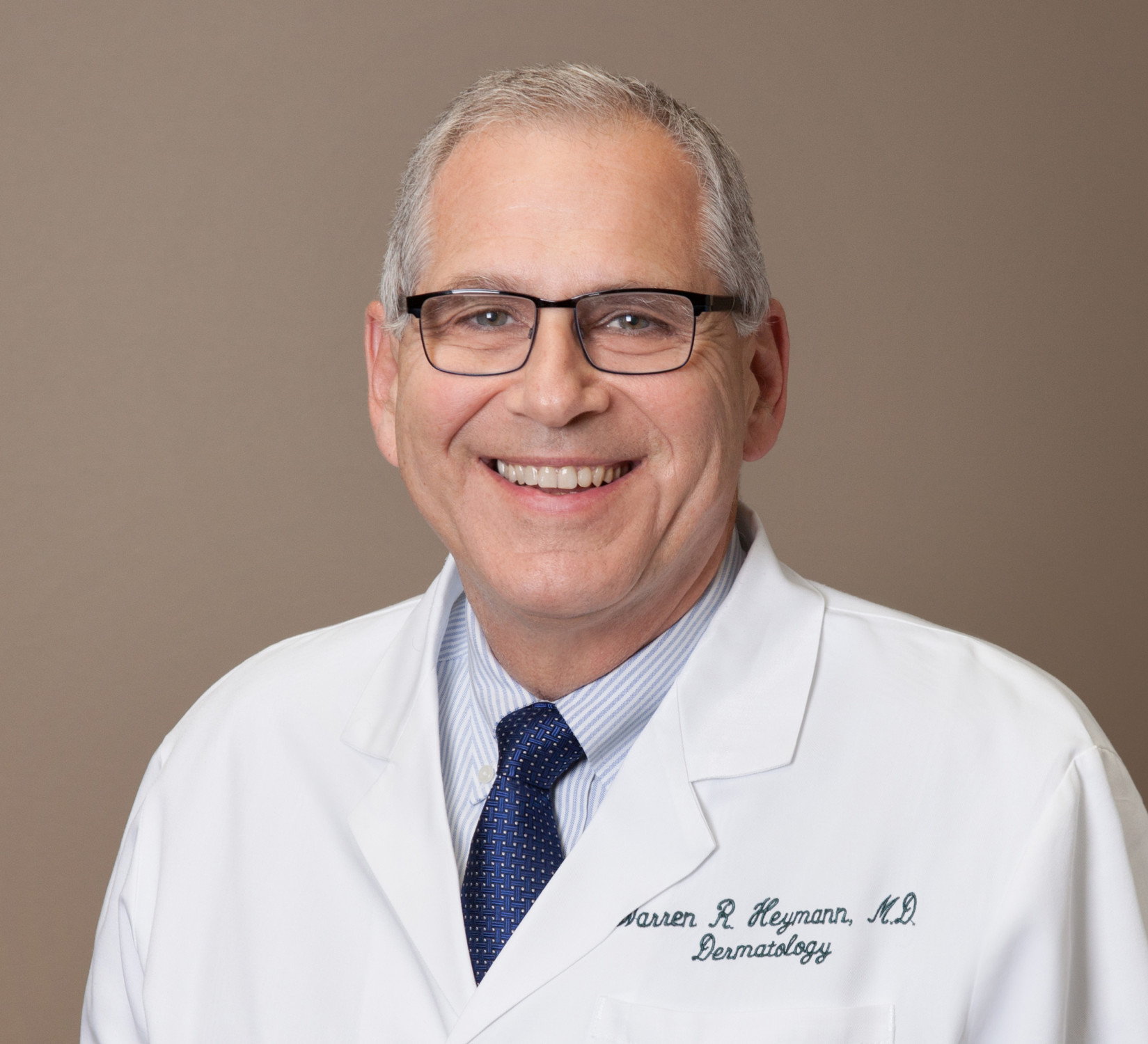
Four years ago, I wrote an editorial entitled “Dermatology Match Day: The Ecstasy and the Agony,” commenting on the absurdity of the hyper-competitive world of securing a dermatology residency, offering perspectives on multiple issues of the application process. (1) This commentary will focus on one aspect only — the advisability of recommending a gap year to bolster the dermatology residency candidate’s chances of matching.
I do not blame medical students for being anxious, desiring to do whatever it takes to achieve their career goals. For those who genuinely want to become dermatologists, their behavior will be guided by their mentors and those who have successfully navigated the process. The decision to take a year devoted to dermatology (usually as a research fellow) has profound implications and should not be taken lightly. With Step 1 of the NBME exam becoming pass/fail, it will become increasingly difficult for programs to decide who are stellar scholars. (There is so much more that goes into deciding who is a correct fit for a program other than board scores, and I do not mean to imply that those scores are foremost in the decision process. That said, they have served as a useful screen when evaluating hundreds of applicants, all of whom otherwise have the combined qualities of Albert Schweitzer, Albert Einstein, and Mother Teresa. When students ask me what I am looking for in a dermatology resident, I refer them to an editorial I wrote 22 years ago — my sentiments have not changed.) (2)
To gain further insight on how others view that gap year, I posed the following question to members of the Association of Professors of Dermatology: If a medical student asks you “Should I take a gap year for research?” how do you respond? I received many thoughtful (and frequently passionate) replies, and unfortunately do not have the space to include all of them. The following is a compilation of viewpoints and I will conclude with my thoughts. (As opposed to the usual DWI&I format, the expert viewpoints are part of the commentary itself.) Please note that anyone directly quoted gave their permission to do so; others requested to remain anonymous and are referred to as “respondents.” This is an editorial; it is not an official statement from the Association of Professors of Dermatology. Finally, this commentary is based on a survey — there are no incorporated scientific analyses or validity tests.

Patrick K. Lee, MD, FAAD (Professor & Vice Chair, Department of Dermatology, University of California, Irvine) acknowledges the scope of the issue: “Thank you for addressing this. I believe it is a bit of a problem because it is starting to become an unofficial ‘requirement’ on some CVs, so much so that applications for research positions are becoming almost as sought after as a derm residency. And many students I have spoken to feel that they are at a competitive disadvantage, with a modest CV, if they don’t have one of these fellowships.” (More from Dr. Lee below.)
Another respondent stated: “Love this topic Dr. Heymann. Super complex and nuanced.”
Nuanced indeed. Many of the following comments portray mixed emotions.
Positive perceptions of the gap year
Brad Glick, DO, MPH, FAAD (Residency Program Director, Larkin Palm Springs Hospital, Miami Florida) was initially concerned about the potential disruption of medical education by taking a gap year, but then offered the following observation: “Having seen many of these young women and men come through our dermatology service following ‘gap years,’ regardless of whether it has been done in between the third and fourth years or soon after medical school, I find that these students are so well prepared and they have been able to do a variety of research including bench and clinical research. Many have done a multitude of clinical trials and are quite experienced. I find this impressive in a candidate applying for dermatology residency and, having asked these individuals whether they ‘felt the gap year has been of high value?’… Their answers have been unequivocally… ‘A resounding yes.’”
Eliot N. Mostow, MD, MPH, FAAD, offers “I’m the chair of the Dermatology Section at NEOMED, a medical school without a dermatology residency program, so my mentoring approach may different than that for others. However, since applications and interest exceed positions, my advice may be useful. I always suggest that the decision to take a year off should depend more on their interests and passion than on the question of whether it will make me a stronger applicant or not. That is, if they have the time and energy to focus on a topic and can work with a mentor who is a fit for them (let’s assume this is easy to find, but it is not), then a year off makes complete sense. So many people I know in leadership positions took tangents along the way…beyond the potential for publication and development of expertise, it can be a time for reflection and further development of ‘who am I?’ and ‘what is MY story?’ The ‘story’ is a key to mentoring that I give to all students. It’s a given that they are almost always smart, personable, and capable of becoming great physicians and dermatologists…but what is THEIR story that they can develop that rings truthful to their interests, intelligence and heart? As with much of the great advice I’ve received over the years, the answer to ‘Should I take a gap year for research’ is ’it depends…’!”
Steve Daveluy, MD, FAAD (Program Director, Wayne State University) said, “A research year is a great way to jumpstart your research career if you’re interested in making research a significant part of your career as a dermatologist. Unfortunately, we program directors all know that many people use the research year to boost their application. That’s not the intention, but it is a reality that it can make your application stronger, especially if you have limited research experiences. I don’t like the direction we're heading, where a research year is becoming necessary in the competitive application process. I think research is wonderful and important, but the research year can amplify disparities, since not all medical students have the means to do one.”
Tejesh Patel, MD, FAAD (Chair, University of Tennessee) says, “Why is the first question I would ask. There are many reasons that students consider a research year including strengthening their application, thinking it’s the ‘norm,’ being genuinely interested in research, advice from other medical students/residents, or a personal reason. Students need to be honest with themselves and others regards doing a research year in order to get the best advice. I would also make sure they understood that doing one certainly does not guarantee a residency position. Having said all of that and having done one, I loved it. I was able to get involved with producing meaning work, learn new skills, build relationships, experience a different institution/city and most importantly, gain a lifelong friend and mentor (Gil Yosipovitch). I definitely think it has helped me on many fronts and have no regrets.”
Eden Lake, MD, FAAD (Assistant Professor, Associate Program Director, Loyola, Chicago) also asks why. “When discussing a gap year the most important question is why are you considering this year? If you decided late and you feel the 3 papers you have aren’t enough, is the rest of your application strong? Do you have good letters? How is it helping you? When I see a gap year on an application I expect publications in an entire year devoted to research. It tells me you are dedicated to dermatology, but seeing significant research done while also being in clinical rotations shows me you can multitask, which I prefer to see in a resident. Gap years provide publications and great letters, and if you feel that is what your application needs to move forward, then it may be a good option. Gap years, however, in no way guarantee that you will match and you have to weigh that against the value of a year of your life. At the end of the day the battle is getting someone’s attention. Preference signaling helps tremendously, as does regional networking and getting to know your program. If that year will grab someone’s attention then it may help you, but that should be the focus. Checking off ‘gap year’ does not in itself create the benefit applicants often anticipate.”
Ilana Rosman, MD, FAAD (Dermatology Residency Director, Washington University) said, “My first question is always ‘why are you considering taking a research year?’ For students with a genuine interest in incorporating research into their career or with a specific academic interest they would like to develop, a research year can be rewarding and contribute to their personal and professional development. There are also students who have had little exposure to dermatology — whether because they are at an institution without a home dermatology program or because they had not previously considered it as a specialty choice. Such students may also benefit from additional exploration of the field through a gap year. However, there are a number of students who complete a gap year because they are concerned about matching into dermatology and feel it is necessary to enhance their application with publications and research experience. The recommendation to take a gap year may come from medical school advisors, social media, and other students or residents. Students should always reach out to a dermatology faculty advisor to discuss this decision, and should carefully weigh the costs and benefits in the context of their own personal and professional goals.”
Amy McMichael, MD, FAAD (Professor and Chair, Department of Dermatology, Wake Forest Baptist Medical Center, Winston-Salem, NC) said, “When a student asks about this, I ask their reasons for wanting to do this. Many students who have a late decision to go into derm, low Step 1 score, grades that are not stellar, or no research are the usual suspects. We review the pros and cons of taking the year, discuss the monetary issues surrounding the gap research year, and weigh if the opportunities that are available are worth the time. If all the concerns align with the research year, then I support the student and help to make sure they are successful in the year. Success is measured by picking a supportive research mentor, preferably a research year that has a stipend, and doable projects that benefit the student. The question of whether or not students or other applicants should do a year of research is a harder one to answer in terms of the ethics of the decision. One recent study showed that URM [underrepresented in medicine] applicants to derm were more likely to do a research year even though they were less likely to match in derm. This is not an equitable outcome, so I do think there are many sides to this decision.”
Robert T. Brodell, MD, FAAD (Professor and Chair of Dermatology at the University of Mississippi Medical Center) said, “There is evidence to suggest that a gap year does not improve one’s chances of matching into dermatology. However, students who choose to take a year out for research may sense that they are not as competitive as their peers...it may be that this subgroup does benefit…though certainly it does not guarantee a match.
The following should be considered:
Immediately after dermatology residency is the time when individuals are most prepared to make significant contributions to our field. An education, dermpath, clinical research, basic science research, or Mohs fellowship might more significantly impact your future.
If you do choose a year out before the match, make sure the research mentor has a solid track record in generating publications. For most programs, a publication is worth 10 projects.
Pick a mentor for your year out that you admire and trust. It CAN be a special year!”
Noah Goldfarb, MD, FAAD (Assistant Professor, Co-Director, Combined Internal Medicine-Dermatology Residency Program, University of Minnesota) said, “Historically, for students that had lower board scores and limited extra-curricular involvement/research, I thought it could be helpful. For the all-star students, I would tell them that they may not need it and that they should only do it if they were passionate about getting the experience. With boards and grades moving to pass/fail, I am not sure how the ‘gap year’ will affect applications. I would think it could help the applicant stand out more. On the other hand, in recent years, we have been placing more weight on the ‘road traveled.’ Some of our faculty feel that the gap year gives some applicants an unfair advantage and may be creating inequity within our field. For this reason, in some instances, I think the gap year may have actually hurt some applicants.”
Amy S. Paller, MD, FAAD (Professor and Chair, Department of Dermatology, Northwestern University Feinberg School of Medicine, Chicago) said, “The gap year can be a time for immersion in dermatology and a tremendous opportunity for learning and student growth. Taken in that context, it’s tremendously valuable. If taken merely to improve one’s odds of getting into a dermatology program without providing a strong foundation of exposure to research and role modeling, it should be discouraged.”
Quotes from respondents:
“It would depend on the person, their current level of maturity and goals. If solely interested in derm residency then a structured fellowship or gap year with great mentors is quite impactful. However, it wouldn’t necessarily have to be research if there was an opportunity clinically or meaningful volunteerism that further help develop them as individuals. We’re always looking for people with purpose not those who are just checking boxes.”
“A very critical thing to discuss. In general, if a student has few to no pubs [publications] or a major weakness of their application (low board scores, less than stellar grades, etc.) I recommend that they take a gap year. Otherwise, I don’t think it is needed.”
“I think a gap year is ok if done at the right time and for the right reasons. As a PD [program director], either between 3rd and 4th year or after internship is ideal. I do not think it should be done between graduation and first year. It is important to not push off step 3 before advancing to research only.”
Concerns about recommending a gap year
Cloyce Stetson, MD, FAAD (Residency program director and Chair TTUHSC Lubbock) opines: “Generally, I do not recommend a gap year. I feel it disadvantages those unable to afford it (those who don’t come from affluent backgrounds). If they have a specific research interest they can consider it, especially if it is funded. Philosophically, I am opposed to it. I think it takes advantage of ‘desperate’ medical students, especially in the setting of an unfunded research year: ‘selling hope.’ It also contributes to a ‘publication race’ or ‘inflationary pressures’ to publish more and more to compete. I would hate for us to get to a point where applicants had to do a research year to be considered for a residency position. We already have research year options after graduation and internship, where interested, but so far unsuccessful, applicants can do 1-4 years of further research, where they are paid more than medical students are ($0 to $20,000).”
Matthew Keller, MD, FAAD (Program Director, Thomas Jefferson University Hospital, Philadelphia) asserts: “My typical response is that a gap year should only really be considered under a few circumstances. 1. If they are not sure if dermatology is right for them and can use the year to make sure; 2. If they truly love research and want to do that for a year to gain skills and insight that may help them in a later career of research and exploration; 3. They are dead set on dermatology and don’t have a great paper application and feel deeply that they could build relationships that may help them match with the understanding that they still may not. I try to be honest with these folks. I actively recommend against a year off for most any other reason especially anxiety about not matching and what I kiddingly call the ‘Cold War’ of application padding that has occurred over the past 10 years. I think that all these unpaid fellowships are becoming a bit of a slippery slope that is definitely working against certain underprivileged applicants.”
More from Dr. Patrick Lee: “The other concern I have is that many of these students are entering into this with a resigned attitude, rather than an enthusiastic one. It’s like being told you have another requirement for graduation, yet another year or so out of your life, with no guarantee of a residency spot. This is not doing well for creating future productive dermatologists if they are having to fulfill another ‘requirement.’ Which leads to my final concern, what I call ‘achievement fatigue.’ I have seen some residents less enthused about writing things up because they are already worn out by the work necessary to get to residency. Do we really want the height of productivity to have peaked before they were even residents?”
More from Dr. Rosman: “Completing a gap year does not guarantee matching into dermatology, and comes with significant costs — financial, time, and opportunity. Equity is a primary concern with gap years. These are often unfunded, requiring students to not only find funding for living expenses but also to delay their training. This is simply not an option for many dermatology applicants, particularly those from lower socioeconomic backgrounds or those who are supporting a family, many of whom are underrepresented minority applicants. As changes in medical education remove traditionally used metrics from the application process (e.g., numerical Step 1 score, grades, academic ranking), I am concerned that more emphasis will be placed on research and publications, driving even more applicants to consider a gap year. This could further exacerbate equity issues in the dermatology application process, and result in even less diversity in our dermatology workforce, despite great strides being made over the past few years. Beyond gaining a foundation in medicine, students should use their undergraduate medical education to pursue their academic and professional interests; that does not have to be focused in research. There is no ‘one size fits all’ approach to becoming a dermatologist, and our field would be all the richer if we embrace diverse life experiences rather than incentivizing a homogenous approach to the application process.”
Ron Rapini, MD, FAAD (Chernosky Distinguished Chair, Department of Dermatology and Program Director, University of Texas McGovern Medical School at Houston, MD Anderson Cancer Center) said, “If applicants are truly interested in a research career, I think a gap year is fine. But it’s a sad state of affairs that so many are told they need to do this to get into dermatology, when there is only a slim chance they will embark upon an academic career. I advise highly qualified applicants that they don’t need to do the gap year. So, what sometimes happens at many places is that the less qualified applicants are doing the gap year or a year of research after failing in the first match attempt, to gain acceptance into dermatology. Programs that reject higher quality applicants in favor of less qualified applicants who did a gap year or extra insincere research year after their internship, thinking the program will get publications out of them, are doing a disservice to the specialty. If our faculty list the 5 worst residents of all time in our program, all five of them were re-applicants who did an extra year of research following their internship to get into dermatology through the back door. This is not to say that all applicants from that pool performed worse. We have had some gems from that pool. The extra gap year during medical school seems less problematic than the problem of re-applicants doing an insincere research year after their internship.”
Travis W. Blalock, MD, FAAD (Associate Professor, Director of Dermatologic Surgery, Mohs Micrographic Surgery and Cutaneous Oncology, Emory University, Atlanta) said, “I believe medical students to be in a very challenging position when it comes to matching into dermatology and I predict that it will become more-so in the years to come. As objective measures of success and differentiation are eliminated, like USMLE scores and medical schools transition to pass/fail grading systems, one of the few objective measures left will be research and publications. It will not be surprising to me if we see a deluge of dermatology applicants over the next few years and a compulsory shift towards a research focused gap year. Beyond USMLE Step 2 Scores, a gap year may be the only way that some applicants can set themselves apart, especially those at medical schools with limited research opportunities.”
Ingrid Polcari, MD, FAAD (Associate Professor of Dermatology and Pediatrics and Program Director of the Dermatology Residency Program at the University of Minnesota) said, ““I would just like to add that in addition to programs not having Step 1 scores to use as a ‘filter’ for the strongest applicants (I realize that the practice of filtering applicants out this way was probably very flawed), it's my observation that students themselves are no longer self-filtering. Now that they know that dermatology is a specialty not only for those who score in the top percentiles on standardized tests, interest in dermatology at my institution has seemingly exploded. To complicate matters, our university is now transitioning clerkships to pass/fail. This means that our students are looking for ways to distinguish them from their peers, and a gap year has become the ‘new normal’ here, whether we advise them to take the year or not. Programs have hard work ahead — we need to prepare ourselves for ballooning numbers of applicants in the coming years and we need to figure out the most equitable way of evaluating these students. If step 1 scores were removed to eliminate bias that is ingrained into standardized testing and the end result is that students feel they have to spend an extra year doing research to stand out (an option that is much more feasible for those with financial resources), haven’t we made the problem worse?”
Katherine Fiala, MD, FAAD (chair of dermatology at Baylor Scott and White Health at the Texas A&M College of Medicine) said, “We have a small residency program and a medical school without a great pipeline to derm researchers. Our derm faculty do not have dedicated research time, so the students we advise often have less than average research numbers compared to the rest of the nation. I try to deter our students from taking a year off to do research, unless they’re wanting to match at a major research university and have a residency and career filled with research (none of our students do). I don’t feel comfortable pushing them to use a year of their life and the expense that comes with that just to do research in order to match into dermatology when many of our graduating residents across the nation land in 100% clinical setting. I also mention to them the inexplicable nature of the match and how we are all surprised from time to time — so, if you don’t match, then you can do a research fellowship at that point.”
Erik Stratman, MD, FAAD (Dermatology Residency Program Director at Marshfield Medical Center and Clinical Professor of Dermatology at the University of Wisconsin, Madison) said, “There are two very important questions you need to answer: Question 1: Are you genuinely interested in dermatology research, or would you be pursuing the research gap year to improve your chances at matching into dermatology? Question 2: How good do you think your chances are right now to match into a dermatology residency, and is there a major problem for you if you would wait to address this research question only if you fail to match? If you are genuinely interested in a career that includes dermatology research, there are definitely some programs in the country better than others that I would like to steer you toward. Not all residencies are alike in the quality of research opportunities and support to offer students nor in how they incorporate, support, or expect research during residency. If, however, you are simply trying to improve your chances at matching, what is it about your current application that makes you feel you are not a good applicant? (Many times, there is a mythology in the belief systems of the candidates that I will try to dispel at this point.) If the proposed gap year is simply to improve your application for residency, I would recommend you try and match without the research gap year experience first. It doesn’t add any more time than if you fail to match and then pursue a research year.” (This was a portion of a very thoughtful response.
Quotes from respondents:
“Encouraging a research year selects for medical students who are financially able to do one more year of medical school. It is discriminatory against those who cannot and widens the gap of disparity between the two.”
“Thank you for bringing this up. It makes me sad that so many of our students feel like they need to do an extra year to match in dermatology. Medicine is already a long road and we should not be adding extra burdens to our students. The problem is that with so many schools changing all courses and clerkships to P/F and step 1 going to P/F, number of publications is one of the few numbers to focus on. I think we as a specialty need to say that ~3 publications are sufficient and more than that will not get you extra points (except for our MD/PhD candidates). Also, looking at the quality of publications over the quantity should be emphasized. I tell my students that if they have about three pubs and a strong overall app, an extra year is not needed unless they really want to do it or have a specific goal to accomplish. If they have no pubs or one, this will likely hurt them in the application process, and they may need an extra year. I also tell them that if they take an extra year, they should be sure they are doing something they enjoy and that helps them grow and that they consider to be a unique experience such as participation in a medical mission trip or a service project that will help build their application and give them personal satisfaction. I am not sure if I am giving them the correct advice or not, but this is my personal view. I would love to hear what others are telling their students.”
“I’m personally not a fan of the gap year, as I think it discriminates against applicants who do not have the financial freedom to take a gap year. When reviewing applications, I honestly tend to view the gap year as a negative. I’ll still consider a student with a gap year but will give more credit to the student who has still managed to do some research and get a couple of publications within the standard four-year window. These kids are already so much more competitive than I was at the same stage that adding a gap year is completely unnecessary.”
“I believe the gap year takes advantage of students who are desperate to match in dermatology. There is certainly a place for it, but primarily for those who are passionate about research and/or the disease of interest. In those regards, I think they can be very fruitful, but my impression is that most people just do it to check boxes. I think an important way to prevent ‘gap year creep’ and ‘accomplishment inflation’ is for residency programs to look at their mission and the resources they have available to them to train residents. For example, a department or program whose strength lies in clinical training, a diversity of training sites, and attendings who love to teach should ideally seek out candidates whose accomplishments and goals speak to a career primarily in patient care and/or academic mentorship. In contrast, those with the resources and personnel to train excellent clinical and bench research scientists may seek more of a mix of applicants with diverse training goals. Our program, which is more clinically based and serves a diverse patient population, spends a significant amount of time reading through applications to extend interviews to trainees that align with what we have identified as our core values. Board scores and research publications matter less, as we know that 1) a single test score doesn’t predict the type of provider you will be and 2) if most of our residents aren’t doing research after graduation, why make that a prerequisite for our program? Finally, ’achievement fatigue’ is real — sometimes when people who did all this extra training finally match in dermatology, they are so tired of the endless work that they phone it in during residency.”
Everything presented thus far is opinion. As for published research on the topic, the following is the abstract by Costello et al:
Background: A new trend includes taking a dedicated year away from medical school to complete a research fellowship. There is minimal data on the benefit of a gap year. We aimed to identify if a gap year makes a dermatology applicant more successful in The Match. Methods: Dermatology applicants who applied to Mayo Clinic Arizona for the 2018-2019 application cycle and Mayo Clinic Rochester, Arizona, and Florida for the 2019-2020 application cycle were surveyed.
Results: In total, 291 dermatology applicants completed the initial survey, and 236 completed the follow-up survey. Ninety applicants took a gap year, 198 applicants did not. There was no significant difference in match rates. When comparing match rates at top dermatology residency programs, 40.6% of gap-year applicants matched to these residencies versus 19.0% of no gap-year applicants (P < 0.01).
Conclusion: Applicants should weigh the opportunity costs before pursuing research gap years as they may not be universally helpful. Applicants who want to match at a top dermatology program may benefit from a research gap year. This data may have limited generalizability outside of the United States. (3)
Shari A. Ochoa, MD, FAAD (Division Chair, Dermatology Surgery, Mayo Clinic Arizona), the senior author of this paper, responded: “Essentially, from our data, gap years will help very excellent candidates match into a top tier program, but for those with lower step scores it doesn’t improve their chances. Of course, the switch from a graded step 1 to P/F is going to change the paradigm, but for the next couple of years gap years can benefit some but not all candidates.”
My viewpoint
I thank my colleagues of the Association of Professors of Dermatology for their thoughtful and sagacious viewpoints on how to advise medical students applying for dermatology about taking a gap year. In my previous commentary, I wrote: “Devoting a year to research is marvelous, if taken out of genuine interest, not because it is viewed as mandatory to match. If that becomes the norm, then the odds of securing a residency will be no better than they are now. In this age of substantial student debt, an extra year(s) is significant.” (1) Taking the broad view, I share the concerns of many that a gap year may potentially counter the advancement of diversity, equity, and inclusion. (1) I can appreciate that for certain applicants — especially those aiming for the top tier programs and genuinely considering a research-oriented academic career, or those who “discovered” dermatology late in their medical school career — it may be a reasonable choice. (In the paleolithic era when I was in medical school, my dermatology elective was in February of my fourth year, just a month before I was to match in internal medicine. There was no match in dermatology. I had no publications. I decided to apply in dermatology — it was love at first sight. I interviewed at three New York programs and had an acceptance two weeks later. If was in that position today, I probably would have stayed in internal medicine.) For the majority of applicants who wish to be practicing dermatologists (there’s nothing wrong with that for goodness sake!), my answer would be no. I sincerely hope that the gap year does not become a de rigueur component of the dermatology residency application process. That will not serve anyone well.
Point to Remember: Increasingly, dermatology residency applicants are taking a gap year of research to bolster their chances of matching successfully. Careful thought must be given by each applicant to determine if this is the best approach to secure a residency. It is my contention (shared by many) that while this might be a reasonable choice for some applicants, this should not become standard practice for the majority of candidates. Additionally, academic dermatology programs need to determine if gap years affect the goals of diversity, equity, and inclusion.
Heymann WR. Dermatology Match Day: The ecstasy and the agony. https://www.aad.org/dw/dw-insights-and-inquiries/medical-dermatology/dermatology-match-day-the-ecstasy-and-the-agony.
Heymann WR. Advice to the dermatology residency applicant. Arch Dermatol. 2000 Jan;136(1):123-4. doi: 10.1001/archderm.136.1.123. PMID: 10632220.
Costello CM, Harvey JA, Besch-Stokes JG, Bhullar P, Lim ES, Kunze KL, Tollefson MM, Tolaymat LM, Ochoa SA. The role research gap years play in a successful dermatology match. Int J Dermatol. 2022 Feb;61(2):226-230. doi: 10.1111/ijd.15964. Epub 2021 Oct 31. PMID: 34719024.
All content found on Dermatology World Insights and Inquiries, including: text, images, video, audio, or other formats, were created for informational purposes only. The content represents the opinions of the authors and should not be interpreted as the official AAD position on any topic addressed. It is not intended to be a substitute for professional medical advice, diagnosis, or treatment.
DW Insights and Inquiries archive
Explore hundreds of Dermatology World Insights and Inquiries articles by clinical area, specific condition, or medical journal source.
All content solely developed by the American Academy of Dermatology
The American Academy of Dermatology gratefully acknowledges the support from Incyte Dermatology.
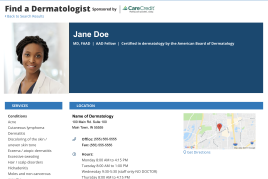 Make it easy for patients to find you.
Make it easy for patients to find you.
 Meet the new AAD
Meet the new AAD
 2022 AAD VMX
2022 AAD VMX
 AAD Learning Center
AAD Learning Center
 Need coding help?
Need coding help?
 Reduce burdens
Reduce burdens
 Clinical guidelines
Clinical guidelines
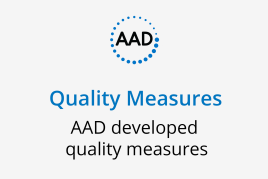 Why use AAD measures?
Why use AAD measures?
 Latest news
Latest news
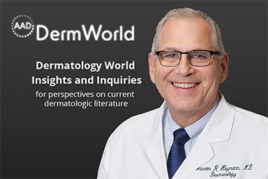 New insights
New insights
 Combat burnout
Combat burnout
 Joining or selling a practice?
Joining or selling a practice?
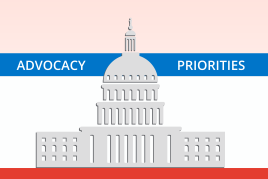 Advocacy priorities
Advocacy priorities
 Promote the specialty
Promote the specialty

